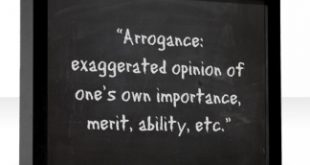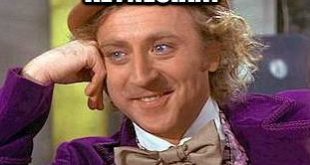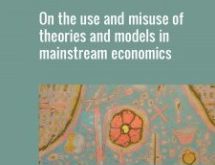[unable to retrieve full-text content]For the (Probably Not) Last Time, the DREAMers Are Not Taking Your Jobs: I believe that a lot of well meaning people genuinely think this, and they deserve an explanation as to why they are wrong rather than just getting yelled at on humanitarian grounds.
Read More »Methodological arrogance
So what do I mean by methodological arrogance? I mean an attitude that invokes micro-foundations as a methodological principle — philosophical reductionism in Popper’s terminology — while dismissing non-microfounded macromodels as unscientific. To be sure, the progress of science may enable us to reformulate (and perhaps improve) explanations of certain higher-level phenomena by expressing those relationships in terms of lower-level concepts. That is what Popper calls...
Read More »Mario is no longer a plumber
Earlier this summer, four economists released a working paper suggesting that part of the decline in male labor-force participation can be attributed to the increased quality of video games. You can see an article about it here, and you can also see a non-technical summary of the paper as part of the NBER digest.Conceptually at least, this makes sense- better leisure activities increase the opportunity cost of working, which decreases the net benefit of working, and generally we do less of...
Read More »Nation’s Middle Class Chillingly Reappears Out Of Nowhere
So I’m not entirely clear on what The Onion is making fun of here, but I have a couple hypotheses: 1. (more obvious) If polls are to be believed, the economy immediately improved once Trump got elected. Yes, this seems absurd if taken literally, but I guess this is what the concept of “animal spirits” is supposed to be all about. If enough people believe that Trump will be good for the economy and act accordingly, it kind of becomes a self-fulfilling prophecy. But it still doesn’t happen...
Read More »Galbraith’s History of Economic Thought
Galbraith’s History of Economic Thought [embedded content] div{float:left;margin-right:10px;} div.wpmrec2x div.u > div:nth-child(3n){margin-right:0px;} ]]> Advertisements
Read More »The History of ‘New Keynesianism’
Stage 0. Late 1960’s. The Phelps volume, and Milton Friedman’s paper (pdf), both thinking about the microfoundations of the Phillips Curve, the difference between actual and expected inflation, and the role of monetary policy. This was the ancestral homeland of both New Keynesian and New Classical macroeconomics, which could not be distinguished at this stage … Stage 1. Mid 1970’s. Now we see the difference. A distinct New Keynesian approach emerges. New Keynesians assume that...
Read More »Rivalry in consumption: the degree to which one person consuming a good makes it more difficult for…
Rivalry in consumption: the degree to which one person consuming a good makes it more difficult for another person to fully consume the same unit of the goodUsage: A good generally exhibits high or low rivalry in consumption.Examples: A fireworks display exhibits low rivalry in consumption. An ice cream cone exhibits high rivalry in consumption. (Alternate phrasing: An ice-cream cone exhibits rivalry in consumption.)See also:THIS VIDEO IS SACRED… ? pic.twitter.com/o7ivZtJf8x— Life on...
Read More »What is wrong with economic theory
What is wrong with economic theory “A wonderful set of clearly written and highly informative essays by a scholar who is knowledgeable, critical and sharp enough to see how things really are in the discipline, and honest and brave enough to say how things are. A must read especially for those truly concerned and/or puzzled about the state of modern economics.” Tony Lawson Table of Contents Introduction What is (wrong with) economic theory? Capturing...
Read More »IPA’s weekly links
Guest post by Jeff Mosenkis of Innovations for Poverty Action. A Red Cross pamphlet from WWI slogan (at the bottom): “Millions for Relief, but Not One Cent for Administration” In a surprise ruling a few hours ago the Kenyan Supreme Court voided the outcome of the recent election, calling for a new one within 60 days. The Nairobi stock market dropped 10 percent right away, triggering a brief halt in trading. Follow Ken Opalo for the latest (and just in general). Here’s one way to cut...
Read More »IPA’s weekly links
Guest post by Jeff Mosenkis of Innovations for Poverty Action. A Red Cross pamphlet from WWI slogan (at the bottom): “Millions for Relief, but Not One Cent for Administration” In a surprise ruling a few hours ago the Kenyan Supreme Court voided the outcome of the recent election, calling for a new one within 60 days. The Nairobi stock market dropped 10 percent right away, triggering a brief halt in trading. Follow Ken Opalo for the latest (and just in general). Here’s one way to cut through...
Read More » Heterodox
Heterodox





